Hilary Slater is attracting attention with her inked outlines of watercolor, an effect that echoes another medium she has worked in for years.
“I’ve been doing stained glass as a hobby since age 12, off and on throughout my life,” says Slater. “When I ink around the shapes in watercolor with a heavier line weight, it really does remind me of stained glass.”
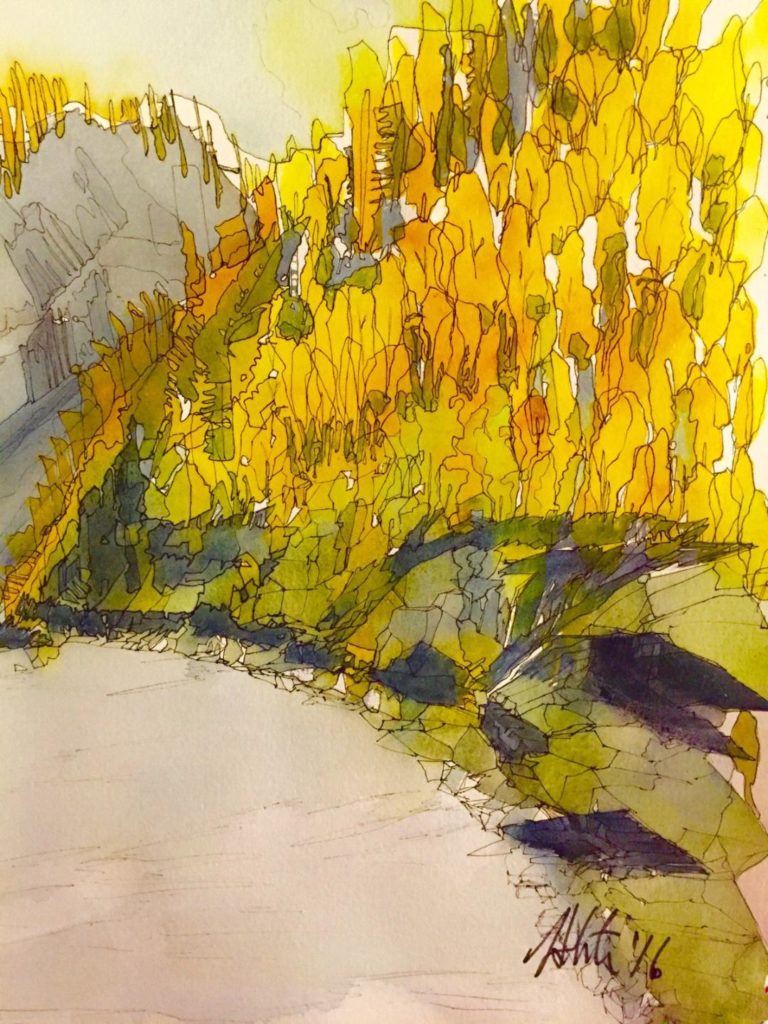
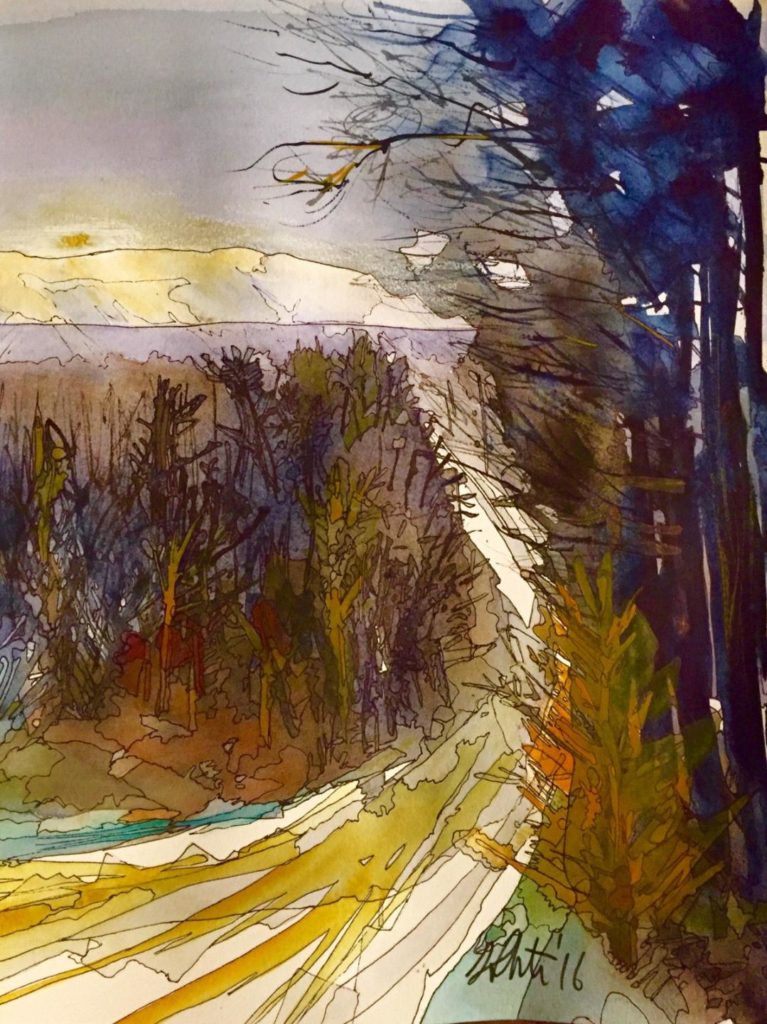
Slater often paints on location in watercolor, then inks at home in the evening. “It’s almost a meditation in the evening for me. The shape of watercolor, when painted wet-in-wet, has always intrigued me. Watercolor takes control in that stage. I enjoy following the paint and the way the paint behaves. When I ink the outlines, it creates a secondary layer of design. The tricky part is deciding which areas to outline. I sit with it for a day or two if I’m not sure. I use four different line weights for inking, from very fine to almost the thickness of a Sharpie. In a clear sky with one cloud, I might do a fine outline. A tree in the foreground gets a thicker line. This creates depth and perspective.”
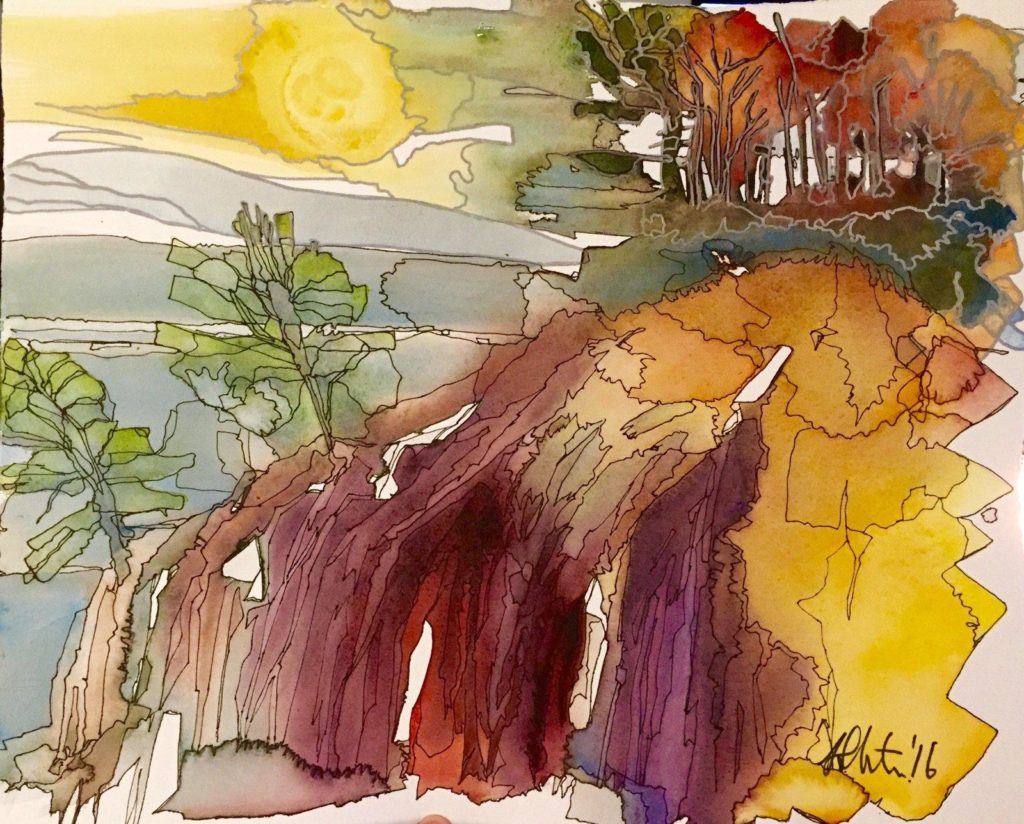
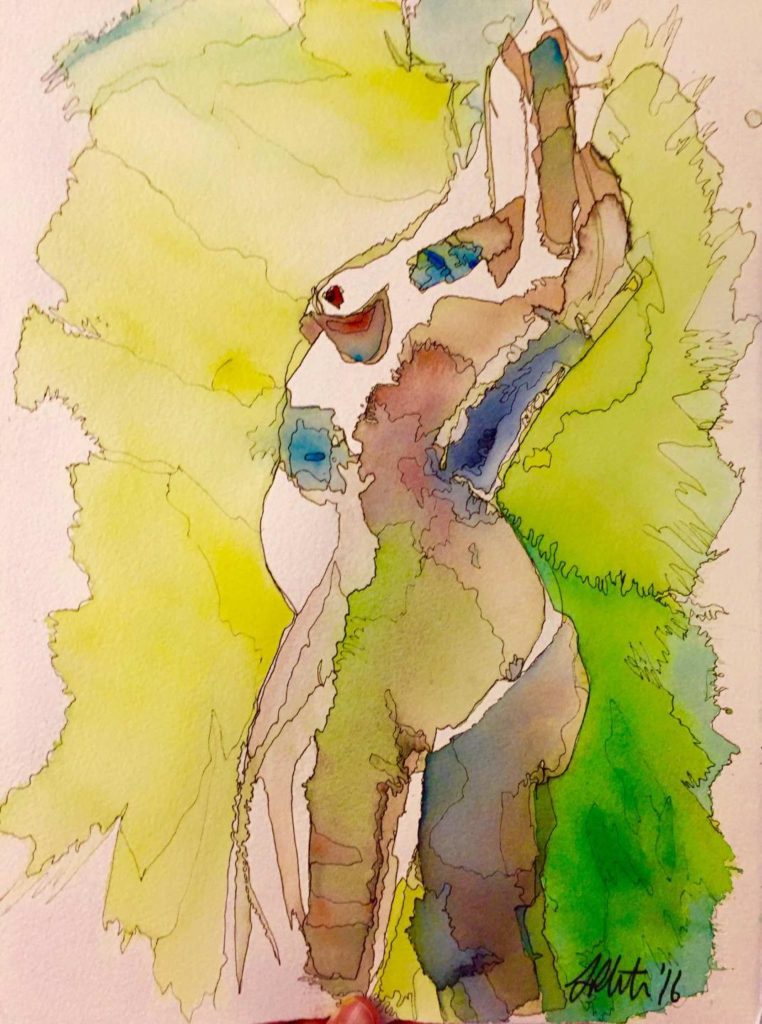
She uses a variety of pens that produce different line weights, with some inks being permanent and others water-soluble. Sometimes she uses a rigger brush, especially for calligraphic lines like those depicting twigs. “Mostly I use waterproof ink because sometimes I’ll go back and add a wash or make changes,” says Slater. “Sometimes I do use water-soluble if it want it to blend a bit with the watercolor.”
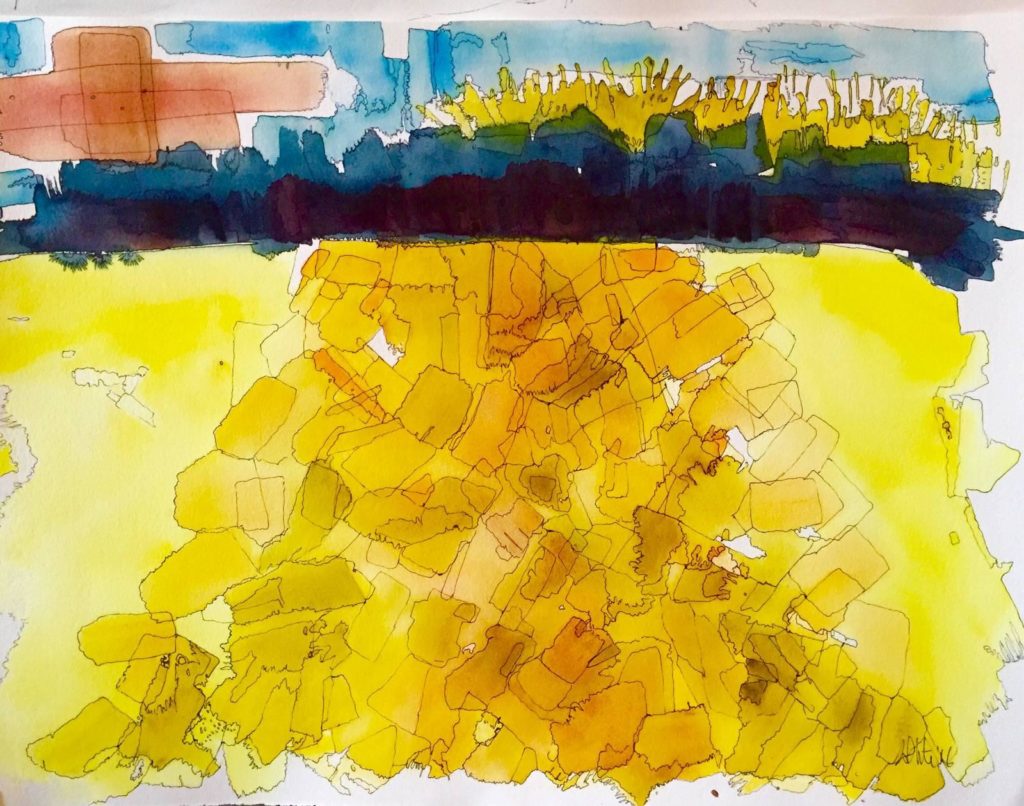
Slater says, “The outlining is a quiet activity; I go off into the zone. So it is more appropriate for my evening time. Anyway, I can’t do the outlining until the painting is dry, so I have to wait at least four hours. At first, it almost became an OCD obsession, and I had to ink the whole piece. People really responded to it. I started with figures, giving outlines to the hair, like a Rasta, and on skin, like tattoos. That got the young crowd interested in it.”
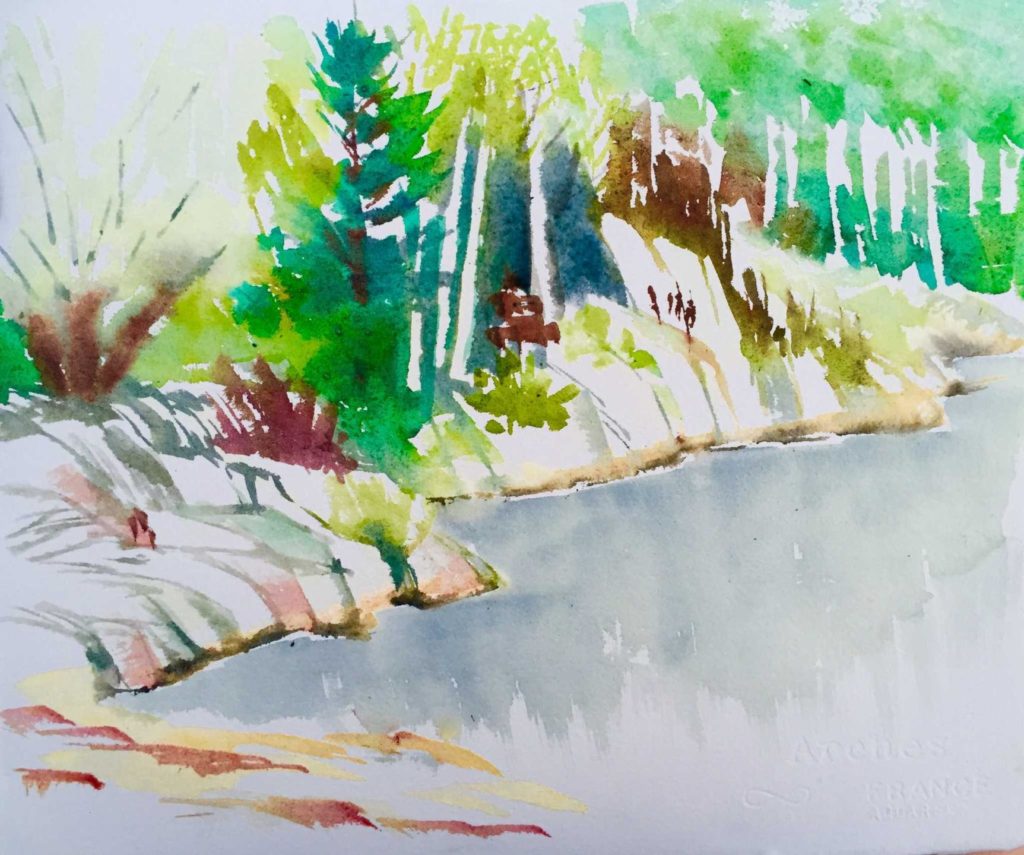
Indeed, Slater has applied this process to a variety of subjects, but landscapes are the most common, given the beauty of her surroundings in Canada. Slater says that in addition to her stained-glass background, she also moved toward the inking of outlines through a painting approach — the artist has applied watercolor paint in lines using the head of the paint tube. This spring, she plans on adapting the process for oil paint.
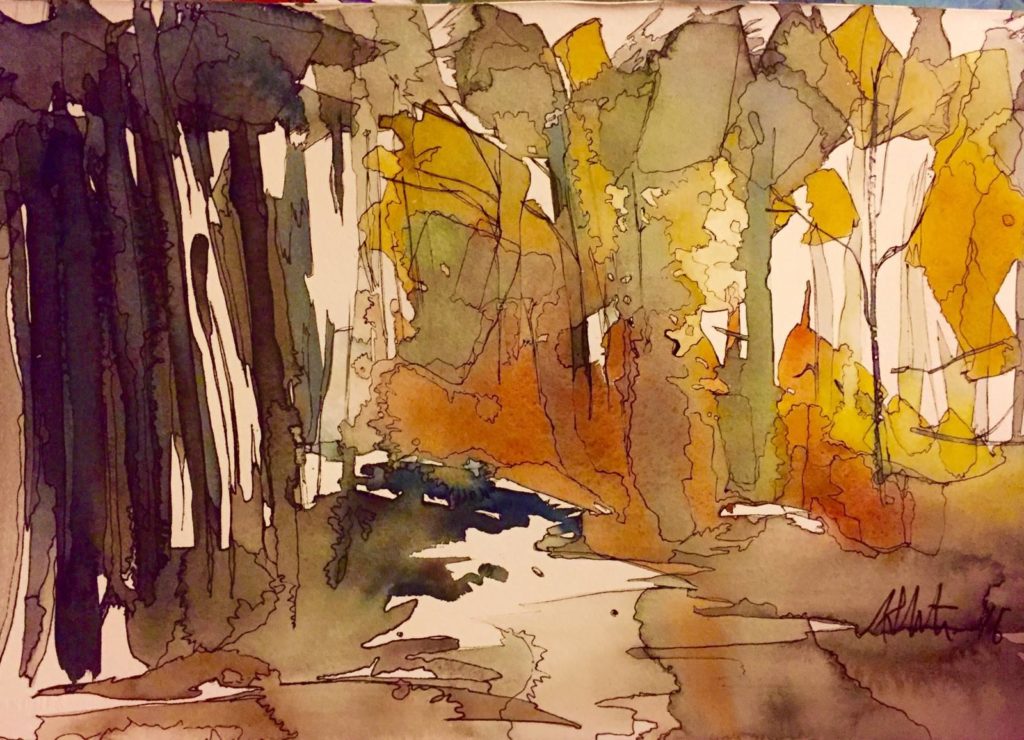
“I want to transition into this style with oils,” says Slater. “I’m thinking of working on a black background and carving in lines.”



